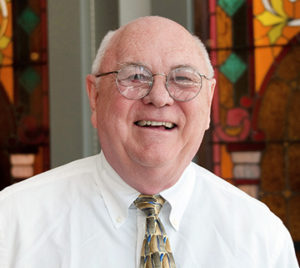February 24, 2019

Readings:
Reading 1: 1 Samuel 26:2, 7-9, 12-13, 22-23
Psalm:103:1-2, 3-4, 8, 10, 12-13
Reading 2: 1 Corinthians 15:45-49
Gospel: Luke 6:27-38
Another Logic
The Ugandan theologian Emmanuel Katongole tells a story about Angelina, a woman whose daughter, along with several other girls, was abducted by the Lord’s Resistance Army in the north of Uganda.[1] After the girls’ abduction, their parents would meet every Saturday to pray, fast, and engage in advocacy for their children, concluding with the Lord’s Prayer. When they tried to pray the prayer, however, they could never say the words “forgive us our trespasses as we for give those who trespass against us.” How could they, they thought, ever forgive the men who had abducted, raped, and kept their daughters in captivity?
One Saturday, however, Angelina told the group that she was convinced that if they could not say those words of forgiveness, they were wasting their time. They had to get rid of the burden of anger and resentment. And so they began to try, and gradually, gradually — and amazingly — she and the other parents began to feel more at peace, found a way to forgive, and were eventually able to say the Lord’s Prayer in full. In the months that followed, Angelina actually met with the mother of the rebel leader and told her that she and the other parents had found it in their hearts to forgive him and his companions.
They still pressed for the girls’ release. They still committed themselves to reveal to their fellow Ugandans the atrocities that the rebels committed. But it was like their ability to forgive gave them a new courage and strength. Even after Angelina’s daughter escaped and came back home (with two children she had conceived in captivity), Angelina continued to give testimony and take action.
Many people found this very difficult to understand. How could Angelina actually forgive those men who had done her and her daughter such harm? One time, for example, when she was talking to an old, blind woman whose son had also been abducted, the woman could simply not believe that such forgiveness was possible. “Are you from another planet?” she asked. The answer, Katangole writes, was in some ways yes! “Christian forgiveness is indeed from another planet — it reflects another logic.”
It is to that other logic that our readings point today. David could have exacted revenge on Saul. The opportunity was there. But he recognized something more important, something sacred, was at stake, and chose another logic. Jesus, in his great “Sermon on the Plain” in Luke’s gospel, lays out that logic in verse after verse of today’s gospel: love your enemies, do good to those who hate you, turn the other cheek, give to everyone who asks you, do to others as you would have them do unto you, don’t judge others, forgive others, be generous. This is not the logic of the “first Adam.” This is the logic of the “last Adam,” the logic of a “life-giving spirit.” It is another logic altogether.
We are at the heart of the Gospel here, the Paschal Mystery. Only if we lose our life can we find it (Matthew 16:25). Only if the grain of wheat die can it yield an abundant harvest (John 12:24). Pope Francis writes that “Life grows by being given away, and it weakens in isolation and comfort. Indeed, those who enjoy life most are those who leave security on the shore …” The “profound law of reality” is that “life is attained and matures in the measure that it is offered up in order to give life to others” (Evangelii Gaudium 10). This is another logic. But when we give in such great measure, Jesus says, “gifts will be given to you: a good measure, packed together, shaken down, and overflowing, will be poured into your lap.” Angelina received those gifts — peace, courage, determination, integrity.
Dare we believe this other logic? Dare we love the difficult people in our lives? Dare we forgive parents, children, neighbors, politicians, spouses, co-workers, once-trusted clergy who have offended us, wounded us, betrayed us, even abused us or those we love? Dare we open our lives to strangers at our borders? Dare we try to understand those with whom we disagree politically, or have a different sexual orientation, or who are enslaved by drugs or alcohol or consumerism? Dare we say the Lord’s Prayer with our whole heart?
Probably not completely. We take after, still, the “first Adam” [and Eve]. But the “last Adam” offers us a “life-giving spirit.” He is, after all, “the face of mercy.” Indeed, he offers us another logic. And it is in this logic that we experience forgiveness ourselves, and perhaps will find the strength to begin to live outof that logic as well.
Rev. Stephen Bevans, SVD
Professor of Mission and Culture, Emeritus